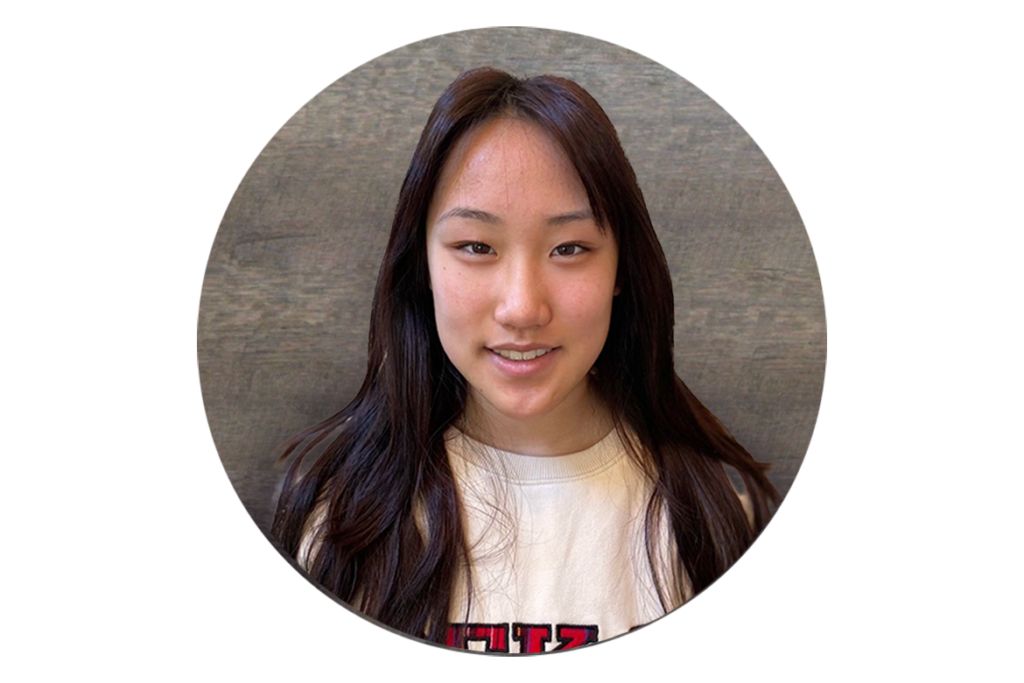What We Owe to Each Other

Laurel Wang | The Chronicle
The idea of “self-care” stems from medical terminology of the 1950s. But it first took on the meaning we know today through the Black Panther Party, as ways civil rights activists could care for themselves to prevent burnout. Alongside self-care came the concept of community care, or a system of support for our communities. The two ideas go hand-in-hand – only after taking proper care of yourself can you meaningfully participate in your community and take care of others.
But recently, the mainstream definition of the term has skewed more toward face masks, bubble baths and self-imposed social isolation. If that last one seems out of place, it is because it is usually packaged to blend right in a feed of flat Canva infographics or clipped from a podcast interview of a lifestyle influencer. Mantras like “protect your peace” or “keep your circle small” advertise a solitary life, above the messy, snotty emotions that plague relationships.
They tell us: set your boundaries and hold them tight. Cut out people that hurt you and forget them completely. You don’t need anyone else. You don’t owe anything to anyone else. You are your own most valuable asset, and you should always, always put yourself first.
With our time freed up from our relationships and personal lives, we’re freer to throw ourselves into work – Paris Geller’s “I’ll have friends after I graduate from Harvard” anyone? Bite down on the messy humanity and leave the productive, quantifiable parts of our existence behind (after all, it’s hard to be a good employee through the blur of post-break-up tears, and overtime looks far less attractive when you’ve got plans for the night).
After years of this self-imposed solitude comes the glossy promise of a future where the new and improved, “fully healed” version of yourself emerges from the cocoon of isolation to engage in frictionless relationships with other mature, “high value” people that handle themselves with the poise and care you deserve in a partner.
But sacrificing relationships and a social life for some kind of mysterious healing process seems more akin to self-harm than care. Our social needs are not just dispensable parts of ourselves that we can drop when relationships get tough. Just like focusing on your studies or going to therapy is a form of self-improvement, so is developing socially. Many of the proposed self-improvement solutions seem to focus more on improving appearances (accumulating wealth, going to the gym) rather than helping you figure out what caused your last fight with your friend. Growth will only come from being challenged, most often by those who love you enough to see your flaws and want to see you grow.
When presented under the guise of self-care, this individualistic thinking feels pretty insidious. We are now choosing to cut ourselves off from our relationships of our volition. In romanticizing our melancholic solitude, we make ourselves more vulnerable to the well-documented effects of social isolation, which include higher rates of depression, heart disease, and even cognitive decline and dementia.
We don’t have to be perfect people to be deserving of love from those around us. Quarantining yourself away is no way to induce some kind of dubiously-defined emotional healing. After all, healing, like maturity, is never a completed process, and there is no such thing as a perfect person, no matter how many years of therapy and self-care you’ve undergone.
I have been guilty of this myself. When others hurt me, I slashed them out of my life entirely, justified by the mature language of boundaries and toxic relationships. But looking back, it was actually just running away from the difficult conversations and work needed to keep my relationships. Fleeing from conflict was ultimately just a way for me to ignore my problems instead of working to solve them.
The choice to cut off others entirely is a blunt knife to relationships that should be handled with nuance. You are not obligated to fix someone else’s life, and if a relationship is hurting you, you have all the right in the world to leave it. But these extreme techniques should be used in similarly extreme circumstances, not over petty high-school drama.
We all owe something to somebody: our parents who give our teenage outbursts endless amounts of grace, the friends you can pour your heart out to, the teachers that really get it, every zealous Amazon reviewer ever, the stranger that smiles at you on a bad day. There is no glamor in denying yourself connection in isolation. In fact, accepting love from others is one of the most important and joyful parts of life. People make mistakes, they cross boundaries, and they hurt others. But they can also be kind, loving and make us better. Our entire existence depends on our communities, and it is up to us to keep them thriving by reciprocating the same kindness and compassion they show us. Self-care was made to support community care. Let us keep it that way.
